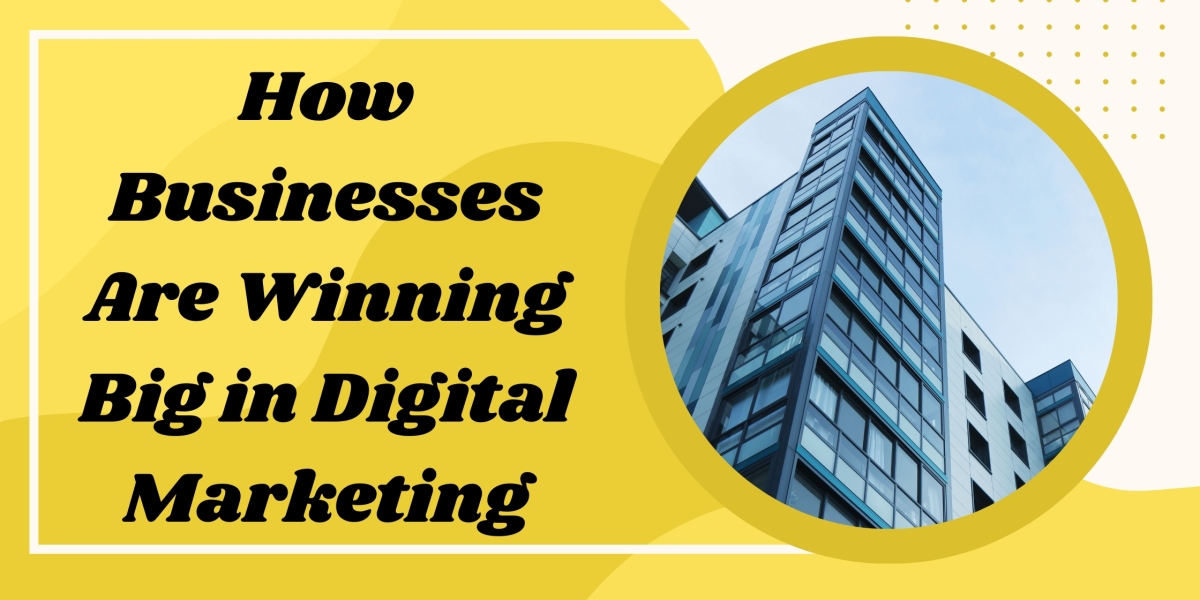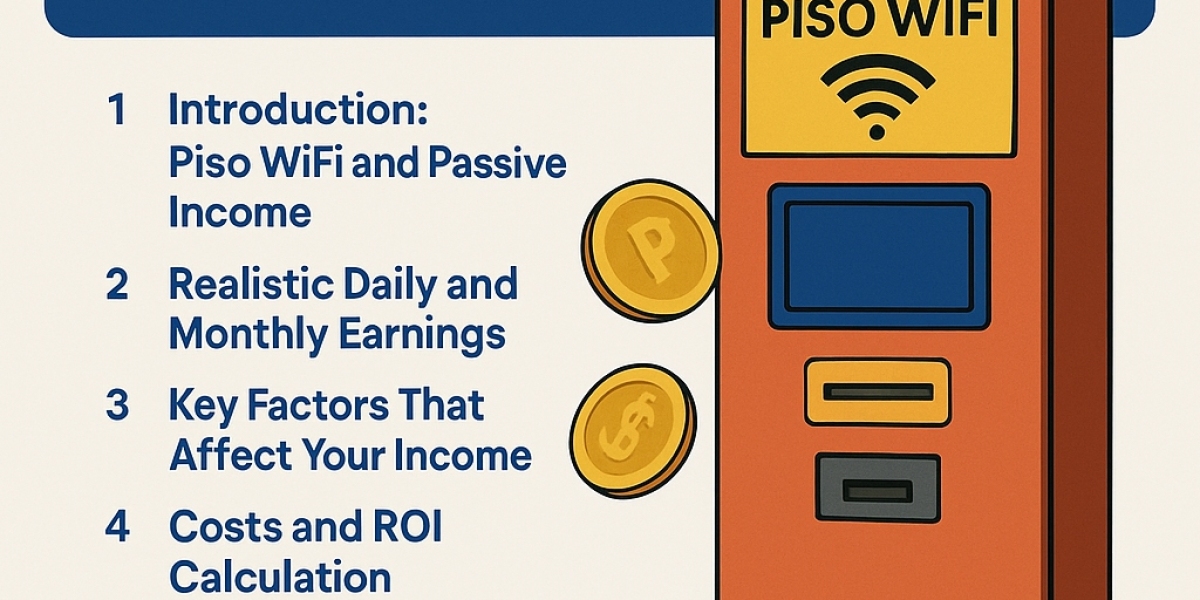For decades, businesses relied on traditional marketing billboards, print ads, TV spots but a quiet revolution has been taking place. Digital marketing has become the new arena where businesses can either soar or disappear without a trace. It’s no longer optional; in today’s business environment, it’s survival. From startups with modest budgets to multinational corporations, everyone is vying for attention online. But what separates the winners from the rest?
The truth is simple yet complex: success in digital marketing requires a precise blend of strategy, insight, and adaptability. It isn’t just about flashy ads or trending hashtags. It’s about understanding your audience, engaging authentically, and leveraging data intelligently. Businesses that have cracked this code aren’t just surviving they’re dominating their markets.
Understanding the Power of Digital Strategy
A digital strategy is more than a roadmap; it’s the blueprint of modern business success. Leading companies invest time in understanding their customer journey, mapping touchpoints, and aligning marketing efforts with measurable outcomes.
For instance, consider Amazon. Its dominance is not accidental. Behind every recommendation and targeted ad lies an intricate web of data analytics and consumer behavior insights. Every email, every push notification is strategically designed to convert interest into action. Businesses that emulate this approach, no matter their size, often see unprecedented growth.
Content Marketing: The Art of Storytelling
Content is no longer just king; it’s the currency of engagement. Businesses that tell compelling stories resonate with their audience on a human level. And this isn’t fluff. Research shows that 70% of consumers prefer learning about a company through articles rather than ads.
Successful companies create content that educates, informs, and entertains. HubSpot, for example, built its empire on content marketing. Blogs, eBooks, and webinars aren’t just marketing tools they’re trust-building mechanisms. The lesson for businesses is clear: create value before you ask for anything in return.
Social Media: Turning Conversations Into Conversions
Social media isn’t just a place for memes and viral videos; it’s where decisions are influenced, opinions are shaped, and purchases are often made. Businesses that use social media strategically don’t merely broadcast messages they engage in conversations.
Take Nike. Their campaigns aren’t just promotional; they are culturally relevant, emotionally compelling, and community-driven. By responding to trends, participating in discussions, and leveraging user-generated content, Nike turns engagement into brand loyalty. Businesses that master this can create a feedback loop where customer engagement drives sales, and sales, in turn, drive more engagement.
Search Engine Optimization: Visibility That Converts
Search engines are the modern gatekeepers of commerce. A product unseen online is a product unsold. SEO has moved far beyond stuffing keywords; it’s now a sophisticated practice combining technical, on-page, and off-page strategies.
Businesses investing in SEO are discovering that higher visibility correlates directly with revenue. For example, local businesses that optimize for “near me” searches capture foot traffic that would otherwise be lost. National brands that maintain authoritative, optimized content continue to dominate competitive keywords. Every business can benefit by understanding search intent and providing content that answers precise customer queries.
Paid Advertising: Precision Meets Scale
While organic strategies are essential, paid advertising allows businesses to accelerate results. Platforms like Google Ads, Facebook, and LinkedIn offer highly targeted options, from demographics to behavioral intent.
But here’s the key: success isn’t just in spending money; it’s in spending smartly. The most effective campaigns continuously test ad creatives, optimize for conversions, and adapt messaging based on real-time data. Businesses that master this approach enjoy exponential ROI while maintaining brand integrity.
Data Analytics: The Hidden Engine of Growth
Digital marketing isn’t guesswork; it’s a science. Every click, impression, and interaction generates data. Companies that harness this information can predict trends, measure campaign performance, and optimize strategies before mistakes snowball.
Consider Netflix. Every recommendation you see is a product of data-driven algorithms designed to keep you engaged. Businesses adopting similar analytical rigor tracking metrics like click-through rates, engagement, and conversion funnels can make decisions with surgical precision, avoiding wasted spend and missed opportunities.
Email Marketing: Direct, Personal, and Highly Effective
Despite the buzz around social media, email remains one of the most effective tools for nurturing leads and retaining customers. Personalized campaigns generate significantly higher engagement rates than generic ones.
Businesses winning in email marketing segment their audience, craft tailored messages, and use automation to maintain consistent contact. For small businesses, this can be transformative. For larger enterprises, it’s a strategic weapon. Brands that master personalization see retention rates soar, turning one-time buyers into lifelong advocates.
Video Marketing: Engagement in Motion
The rise of video is undeniable. Short-form content dominates social feeds, while long-form videos educate and build credibility. Brands using video strategically see higher engagement and conversion rates across channels.
Take Apple, whose product videos combine sleek design, narrative, and emotion. The result? Products become aspirational, and audiences feel connected before making a purchase. Businesses that invest in quality video storytelling elevate their brand and make complex products or services more relatable and understandable.
Influencer Partnerships: Leveraging Trust at Scale
Influencer marketing has matured beyond celebrity endorsements. Today’s consumers trust voices they relate to micro-influencers often outperform big names because of their authenticity.
Companies partnering with relevant influencers not only reach targeted audiences but also benefit from social proof. For instance, beauty and lifestyle brands collaborate with influencers who share genuine experiences, driving awareness and trust simultaneously. Businesses learning to navigate this landscape are winning attention and loyalty that traditional ads cannot replicate.
Mobile Optimization: The Device That Drives Decisions
With mobile devices dominating digital interactions, businesses ignoring mobile optimization do so at their peril. Responsive design, fast-loading pages, and mobile-specific content aren’t optional they’re mandatory.
Companies that optimize for mobile see higher engagement, lower bounce rates, and increased conversions. Whether it’s a small e-commerce store or a global enterprise, mobile-first strategies ensure accessibility and a seamless user experience, which ultimately influences purchasing decisions.
Retargeting and Customer Retention
Acquiring customers is expensive; retaining them is invaluable. Retargeting strategies allow businesses to re-engage visitors who didn’t convert initially. These techniques, combined with loyalty programs and personalized follow-ups, significantly increase lifetime customer value.
Amazon excels here again through personalized recommendations and reminder emails, they ensure that previous visitors are continuously nudged toward conversion. Companies leveraging retention strategies often see revenue growth outpace customer acquisition efforts, proving that returning customers are more profitable than new ones.
Emerging Technologies: AI, Chatbots, and Automation
Artificial intelligence and automation are transforming digital marketing. Chatbots handle inquiries instantly, predictive analytics forecast trends, and AI-generated insights optimize content strategies.
Early adopters of these technologies gain a competitive edge by reducing manual effort while increasing personalization. Businesses embracing AI and automation find themselves ahead in engagement, efficiency, and ultimately, revenue.
The Global Perspective
Digital marketing is no longer confined by borders. Businesses can reach audiences in new geographies with precision and minimal overhead. E-commerce brands expand internationally, and service providers connect with clients thousands of miles away.
Understanding cultural nuances, language preferences, and regional trends allows businesses to craft campaigns that resonate globally. Those who do this successfully can scale exponentially without the traditional constraints of physical presence.
Lessons from the Winners
What unites businesses that are winning big in digital marketing? Several key traits emerge:
Customer-Centricity – Every decision starts with the audience.
Data-Driven Decisions – Gut feelings are replaced by measurable insights.
Adaptability – Trends evolve quickly; flexibility is crucial.
Storytelling – Engaging content builds trust and brand loyalty.
Integrated Strategies – SEO, social media, email, and paid campaigns work cohesively rather than in isolation.
These lessons are not abstract. They are actionable strategies any business can adopt to compete effectively in the digital landscape.
Conclusion: The Future Is Digital
The businesses that dominate today are those that recognize digital marketing as a comprehensive ecosystem rather than a collection of individual tactics. From SEO and content to social media, analytics, and AI, every element works together to build brand visibility, trust, and revenue.
For businesses aiming to grow sustainably, partnering with an experienced organic seo services company can provide the strategic edge needed to navigate this complex landscape. Success is no longer a game of chance it’s a game of insight, strategy, and execution.
FAQs
1. What is the most effective digital marketing strategy for small businesses?
Small businesses often benefit most from content marketing, local SEO, and social media engagement, as these approaches build trust and attract highly targeted audiences without excessive spending.
2. How can businesses measure ROI in digital marketing?
ROI can be measured using metrics like website traffic, conversion rates, customer acquisition costs, and lifetime value. Tools like Google Analytics and CRM systems provide detailed insights.
3. Is paid advertising necessary if I have good SEO?
While strong SEO builds long-term visibility, paid advertising accelerates results, targeting specific demographics and driving immediate traffic to campaigns or product launches.
4. How important is mobile optimization?
Extremely important. Over half of web traffic comes from mobile devices. Mobile-friendly websites improve user experience, reduce bounce rates, and increase conversion rates.
5. Can AI replace traditional marketing teams?
AI enhances efficiency by automating repetitive tasks and providing insights, but human creativity, strategy, and decision-making remain irreplaceable for effective marketing.









